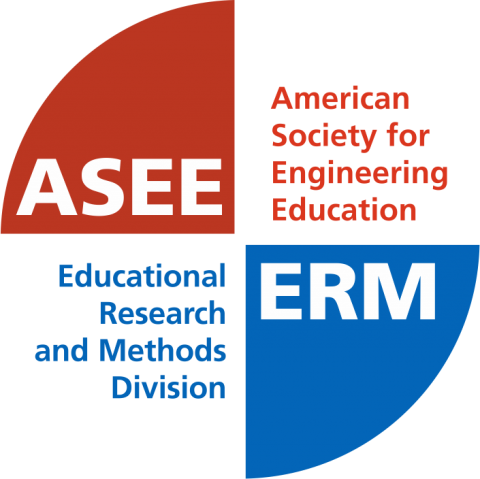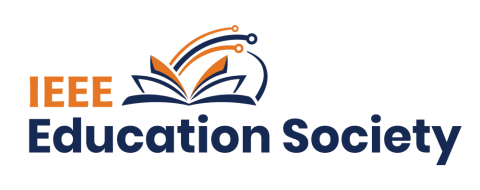View The Doctoral Symposium FIE 2019 PhD Student Guidelines
Goal and Scope
The goal of the FIE 2019 Doctoral Symposium (DS) is to create a forum for PhD students working on conceptual foundations, learning and teaching techniques, research methods and tools in the area of engineering and computing education research. It will provide participants with an opportunity to present and discuss their research with senior researchers in a constructive and friendly atmosphere. Experts in Computing and Engineering Education Research will provide students with feedback on their research, allowing students to ask questions about how they can overcome obstacles or enhance their current research proposals.
The scope of research topics of the DS is the same as for the main conference. Therefore, we welcome submissions related to educational issues and innovations in computing and engineering at the graduate, undergraduate and pre-college levels. The theme for 2019 is Bridging Education to the Future. In addition to the traditional FIE topics, we are open to submissions on the following themes: diversity/equity/inclusion in engineering/computing, encouraging and teaching innovation, innovation in software engineering education, upward mobility, and EPICS/service-learning.
Participants
The symposium is designed primarily for students who are currently enrolled in the early to mid-stages of doctoral studies with a focus on computing or engineering education research. Students who are considering doctoral studies and who have identified a field of research may apply as well.
Content and Approach
The symposium will be run in an interactive style, with opportunities for students to present, discuss and develop their work, both with peers and with discussants (as experienced academics) who will also provide constructive critique. All participants should be fully committed to one another’s success and be prepared to give honest and helpful feedback to their peers during the symposium sessions. So the more thought that participants have put into their preparation, the more scope there is for feedback to be given. It is intended that participants will leave with a clearer set of ideas, a more fully developed research design or plan and constructive responses to any burning questions relating to their theses. Candidates will be encouraged to consider a publishing plan to accompany their thesis studies.
Submission
Research proposals submitted to the doctoral symposium should be a maximum of 2 pages, including references and figures, and should be formatted using the same IEEE submission template stipulated for conference papers. Each submission must include title, researcher's name (as single author) and affiliation, supervisor(s) name(s) included in acknowledgements, abstract, list of keywords and a complete list of references. Research proposals will be subjected to a single-blind review. Submissions should at least discuss the following elements: the background of the research, the motivation for the research, the research question(s) addressed in the study and a description of the proposed research method. The proposal should be presented in a structured abstract format as follows: Context; Object; Method; Results; and Conclusion (for an example see Information Software Technology Journal, “Guide for Authors” http://www.elsevier.com/journals/information-and-software-technology/0950-5849/guide-for-authors). Students in the later stages of their research are encouraged to include an overview of their completed research activities.
Research proposals should be submitted through the EDAS conference site. Further details can be found under the ‘author info’ tab on the main conference site at https://fie2019.org/pages/final-manuscriptsubmission-instructions
Acceptance
Accepted research proposals will be included in the proceedings of the Frontiers in Education Conference, which will be published by IEEE. Authors of accepted papers are required to register for the FIE conference at the early bird rate, and for the Doctoral Symposium.
Presentation and publication
of research proposal On the day that the symposium meets, each student will display and present a physical copy of a research poster, which is expected to follow the International Standards Organization (ISO) poster size format (A1) in portrait or landscape orientation. Each presentation during the doctoral symposium should take approximately 10 minutes. There will be a further 5 - 10 minutes dedicated to discussions, questions and feedback from assigned peers and the DC members.
Visit https://fie2019.org/pages/student-poster-paper-guidelines for further information
During the conference in the breaks, students will also have an allocated time slot in which to present their physical posters. This will allow PhD students to ask the different experts who are attending the conference for feedback or advice, and potentially to perform surveys or interviews. “Future researchers” can therefore learn from more senior academics, thus fostering an exchange of knowledge and collaboration.
Chairpersons:
Dr. Tony Clear, Auckland University of Technology, New Zealand [email protected] Dr. P.K. Imbrie, University of Cincinnati, Ohio, USA [email protected] Assoc Prof Alison Clear, Eastern Institute of Technology, New Zealand [email protected]
Venue and Pricing
The Doctoral symposium will be held at the FIE2019 Conference venue on Wednesday October 16th as a pre-conference event. Participation is $60.00 for students registering for the FIE2019 Doctoral symposium. Students may register through the conference site registration page https://fie2019.org/pages/register. Lunch and coffee breaks are provided.
Important Dates
*July 23, 2019 Extended Submission Deadline*
August 1, 2019 Notification to authors
August 31, 2019 Camera Ready
October 16, 2019 Doctoral Symposium



